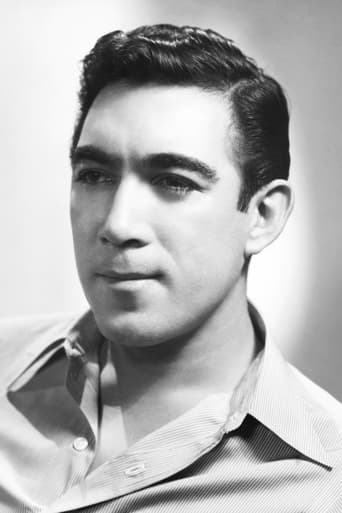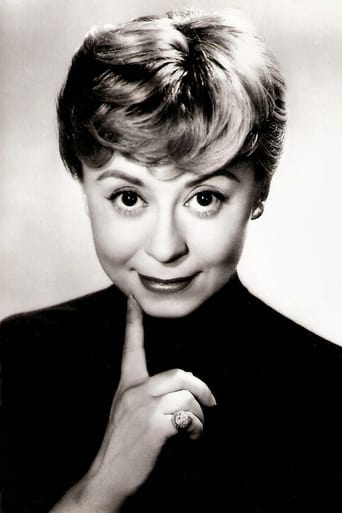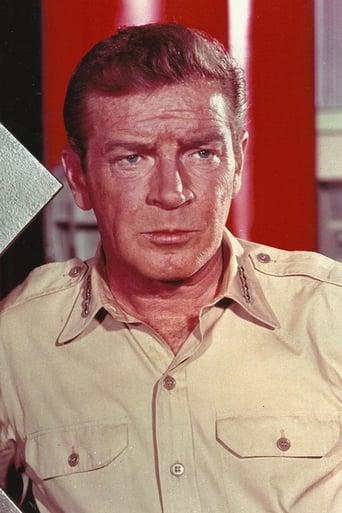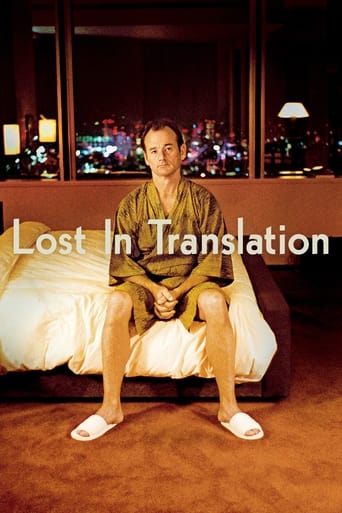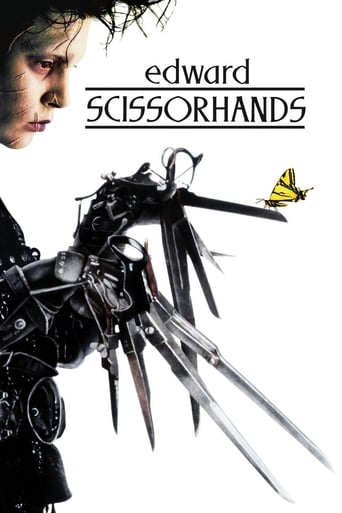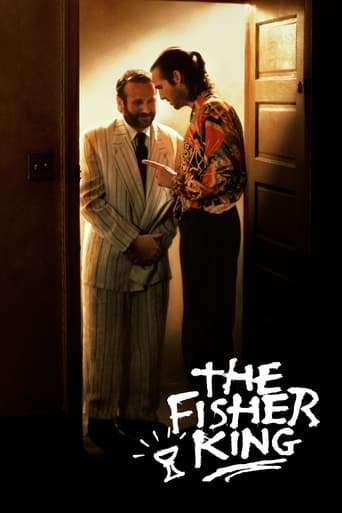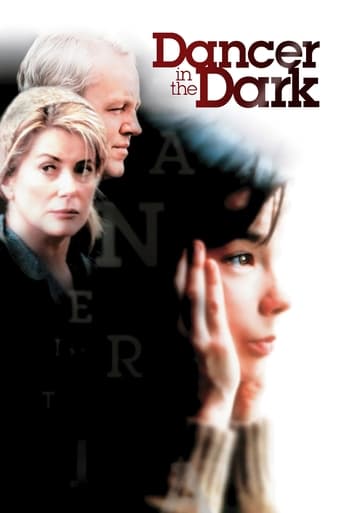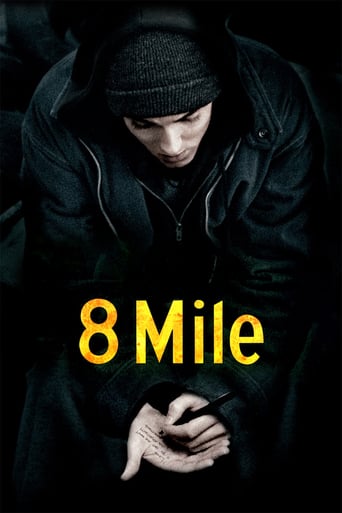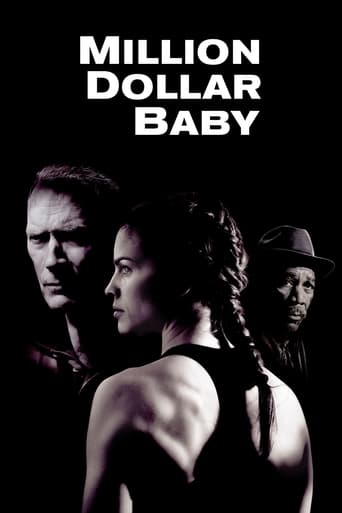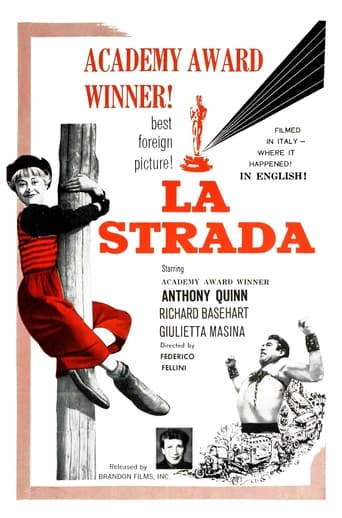
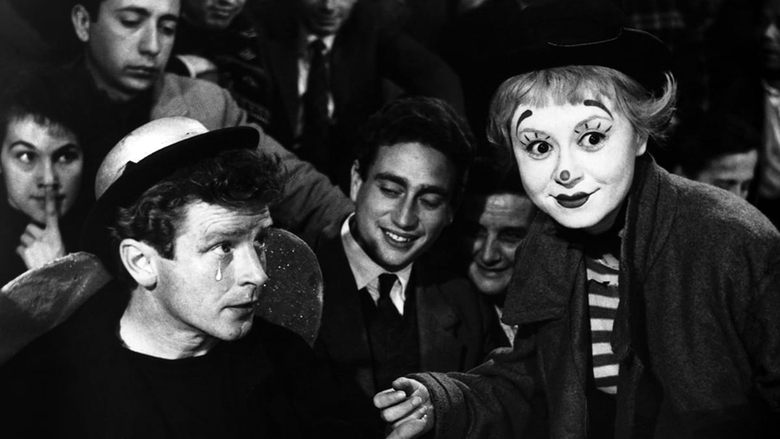
La Strada (1956)
When Gelsomina, a naïve young woman, is purchased from her impoverished mother by brutish circus strongman Zampanò to be his wife and partner, she loyally endures her husband's coldness and abuse as they travel the Italian countryside performing together. Soon Zampanò must deal with his jealousy and conflicted feelings about Gelsomina when she finds a kindred spirit in Il Matto, the carefree circus fool, and contemplates leaving Zampanò.
Watch Trailer
Cast


Similar titles
Reviews
Sad story of a waif , shy woman , Gelsomina (Giulietta Massina , Federico's real-life wife) , who is sold by her mother to Zampano for 10,000 lire and a few kilos of food . Brute Zampano (Anthony Quinn) is a cruel , coarse , strong-man who shows his vigour by breaking a chain wrapped around his chest . They tour on the road ("la Strada") , along the countryside where they perform in village squares and she helps him as a drummer during his shows and passing the hat for whatever the regularly small crowd is prepared to give . They join a small traveling circus where eventually meet up with a gentle acrobat (Richard Basehart) and the unexpected happenings go wrong .Sensitive and agreeable film film packs intense drama , emotion , good feeling and tragedy . The picture is , by turns , strong and amusing . Here Fellini demonstrates a real sensibility to the underprivileged of the world and his belief in spiritual redemption . Fellini's fantasy ostensibly elucidates the inner life of a poor and normally mistreated woman . The flick contains a highly symbolic internal logic , enjoyable imagery and bizarre , abstract plot peppered with risqué humor . Here Fellini uses the unfortunate story of a distressed woman delivering over her life to create a good and often wild film . The film relies heavily on the peculiar relationship between Gelsomina and Zampano , but it doesn't make boring but interesting ; as he doesn't treat her well and when she tries to run away , he beats her . Magnificent interpretations all around . Trio protagonist is frankly awesome . Nice performance by Giulietta Massina as the waif sold by her very poor mother and she feels like going with him , but he puts confusion in her mind and finally falls in love with him despite his abuse . Excellent Anthony Quinn as the traveling , itinerant showman , Zampano exhibits feats of strength and meanwhile he ill-treats her . Anthony Quinn was working on a film with Giulietta Masina when she introduced him to her husband , Federico who was immediately convinced that the Mexican actor would make the perfect Zampano the strongman in his new film , which was to become La Strada (1954), and implored him to accept the character . And sympathetic acting by Richard Basehart as a tight-rope walker "The Fool", a funambulist who convinces Gelsomina to question her choices . Well produced by two greatest Italian producers , Dino De Laurentiis and Carlo Ponti , who originally wanted Silvana Mangano , Dino's wife , and Burt Lancaster as the leads . However , at the beginning Federico Fellini had an extraordinarily difficult time finding producers who were willing to back the film and he began shooting the film before any financial backers had officially signed on .The motion picture was masterfully directed by Federico Fellini , he admitted that he each of the principal characters in the film represented the elements . Zampano represented the Earth , Gelsomina represented water, and the Fool represented air . It won the first ever Academy Award for Best Foreign Language Film (1956) and N.Y Critics Award to Foreign Film (56) . Fellini who inspired the word "Felliniesque" was one of the best Italian filmmakers/writers . He frequently cast Marcello Mastroianni and Giulietta Masina and Score by Nino Rota . His best works include dreams like imagery and nostalgia . He made Italian classics , such as : ¨8 and 1/2¨, ¨Roma¨, ¨Satyricon¨, ¨I Vitellone¨ , ¨La Dolce Vita¨ , ¨The clowns¨, ¨Casanova¨, ¨And the ship sails on¨, "City of Women" , "Orchestra Rehearsal" and directed his spouse Giulietta in various films such as : ¨The white sheik¨ , ¨Il Bidone¨, ¨Juliet of the Spirits¨, "The Nights of Cabiria" ¨Ginger and Fred¨ and including some auto-biographic elements , especially in ¨Amarcord¨ (1973) , though he denied his film is autobiographical , but agreed that there are similarities with his own childhood .
Others might see symbolism in the characters of this film based on the elements and director Federico Fellini certainly includes his familiar tropes in this film such as the sea, circus, clowns, beach, good women and prostitutes.To me this is a road picture of two not very bright people who end up together. Zampano (Anthony Quinn) has a circus strong man routine travelling around in a beat up camper van pulled by a motor cycle. His companion Rosa has died, he goes to tell the news to her mother and buys Rosa's younger sister as a replacement. Gelsomina (Giulietta Masina) who he brutally trains to be his assistant.Zampano is a brutish thug, a drinker, a womaniser. I was never convinced whether he loved or cared for Gelsomina, I believe she cares for him and even loved him.When both join a larger circus she comes into contact with the Fool (Richard Basehart) who is a clown and a high wire act. He is a sweet man to Gelsomina, even a kindred spirit but he senses that Gelsomina loves Zampano and maybe he loves her but cannot show it or say it because he just lacks the intelligence. The Fool like a few other people throughout the film offers her a way out from Zampano but she refuses.The Fool also has a deep dislike for Zampano, always taunting him and driving him to a rage. Eventually their path will cross again leaving Gelsomina mad and Zampano to abandon her. At the end Zampano is left unfolding his emotions to the sea. Maybe he eventually realised the love he has lost.There is distinctive music from Nina Rota. Actress Masina has a clown like way of movement which looked like Harpo Marx combined with Charlie Chaplin. You can see why the circus wanted her to stay. She had an inane sweetness in contrast with Quinn's Zampano whose only ability was the strongman act where he could break chains with his pectoral muscles. If he had any sense he might had realised that that being taunted by The Fool could had been incorporated into the circus act with beneficial results.There is a tragic undercurrent in this film very much from the first scene heightened by the black and white photography and Fellini's symbolism's which he revisited many times in the course of his career.
Life is a cruel and punishing road that often seems indignant at our audacity for simply walking along it. There are no guaranteed stops but for that ultimate destination, and so how we get there is entirely up to us. Or sometimes not at all. This isn't Cormac McCarthy's vision of The Road of life, in which the entire landscape is enveloped in nihilistic despair, but what McCarthy's road and Fellini's road both share is that the people traversing it have been dealt a meagre hand in life and have to work with what they've been given. The father and son in The Road, despite the post-apocalyptic oblivion that surrounds them, can survive because they have that sacrosanct shield of familial love to protect them. Here, the seed of love between the girl and her master was un-watered, unacknowledged, the cards they were given were misused, often not because of lack of trying but because of a pure inability to grasp them. What Fellini has constructed, like McCarthy in The Road, is a world of which the logistics do not matter, as the greater environment, whether that be an apocalyptic theatre or a or the sparse Italian landscape, simply serves to highlight its characters and their tragedy at its core. I had described this film as conventional, but it is only conventional in the sense that doesn't have these characteristics, and it's not something that you're necessarily deciphering every image. What we have here is a road movie, both literally and metaphysically (yes? The metaphysical road? Yeah, you know what I'm talking' about) in which is immediately accessible because the emotion is so palpable. I was mentioned in my Drive review the weight of physical acting, and how that often bridges the divide between film and audience just as effectively as dialogue does, and that really applies here. Gelsomina, played by Giulietta Masina, Fellini's wife, is such a wondrous presence; her waifish frame, the round face that is like a fishbowl in which we see all manner of emotion flicker by, and the naïve way in which she clowns about, both tentative and joyed is such a sympathetic synthesis that I'm surprised as to how I hadn't actually discovered this character before watching this film, and it seems that is generally agreed that she is something of a female counterpart to Chaplin. She has one of those readily iconic faces, and when she dons her clown make-up she wears these sharp vertical eyebrows that seem to exaggerate her already widened eyes, and throughout the film it is easy to get lost in both the humour and the sadness of them.Gelsomina is part of a large rural family that lives by the seaside, and in the opening shot she frolics at the shore, surrounded by a gaggle of playful children. Life seems fairly simple, and then the rugged and imposing Zampanò (Anthony Quinn) turns up, and buy Gelsomina from her mother for 10,000. The whole film carries that neo-realist edge, a world of social struggle, as it seems Gelsomina's mother is financially burdened, as we learn that she has already sold a daughter, named Rosa, prior to this arrangement. Apparently Rosa died. We are never explicitly told how or why, but it is easy to speculate, as we see Zampanò who light up a cigarette, all hulking physicality, as he waits to carry of this young girl away from her family forever, and as we soon learn the full extent of his brutality. Zampanò is a man who only seems to be able to communicate through his harsh physicality, through which he lives his entire life. He is a street performer, who only has one small novelty act, in which he tightens a chain around his chest and breaks its grip by a powerful exhale. He lives by rote, a simple creature who can easily break physical barriers but isn't capable of breaking emotional ones. As the movie progresses, it seems to almost fluctuate between different rhythms, at some points a comedic routine as when Zampanò tries to teach Gelsomina how to perform her simple musical duties with a drum and trumpet, in which she approaches with innocent wonder, and other points the feeling is quite sparse, with long stretches of sadness. I suppose it reflects the metamorphosing of their relationship, growing but never settling because it never has the chance. Gelsomina is ultimately something of a cipher, she seems slow-witted, her eyes flit about with wonder, she takes delight in learning the simplest of things, yet when she speaks she has something of a wiser understanding about her, and I wonder if her clownish innocence isn't something more calculated, perhaps because it is only through this approach that she feels safe enough to interact with the world. But then maybe this is the tragedy of the characters, as they cannot quite reconcile their outward persona with something more sensitive inside; amorphous and flickering between two states. The Fool, who we later meet, played with wonderful exuberance and passion by Richard Baseheart, is the classic fool, who comically strides around at mocks people at his leisure, often cruelly, which is ultimately his downfall, but beneath that is a wisdom and understanding that he rarely shares. "I don't know for what this pebble is useful but it must be useful. For if it's useless, everything is useless. So are the stars!" He encourages Gelsomina to understand her own potential as a person, and is the one perceptive enough to recognise the bond between her and Zampanò. But Zampanò is the final tragedy, a brute with a love he could not begin to articulate or even recognise, and when he finally breaks down and cries on the beach, a place which seems like the end of the world, it hurts because like the other characters he understands when it is already too late, and now there is no more road left on which to travel.
I was curious to watch this movie because I had seen many other Fellini's works but not this one. I was also told that was one of his best and so I was even more intrigued. I must say that I was surprised by how melancholic and sad it is. It reminded me of a Neo-Realistic movie for its scenes set in the city suburbs amongst people who struggle to carry on in every day life. Of course, other Fellini's movie had also these kinds of setting, but the Italian director paints his portrait of provincial Italy with more sad and crude hues, helped also by Gelsomina's melancholic recurring trumpet music theme, written by the great Nino Rota. However you can still see the Fellinesque style in "La Strada", for example in the irony in the scenes of the argument between Zampanò and the crazy guy. The circus certainly is another typical Fellini subject, present in many of his works. Overall a good movie but definitely not one of his best.


